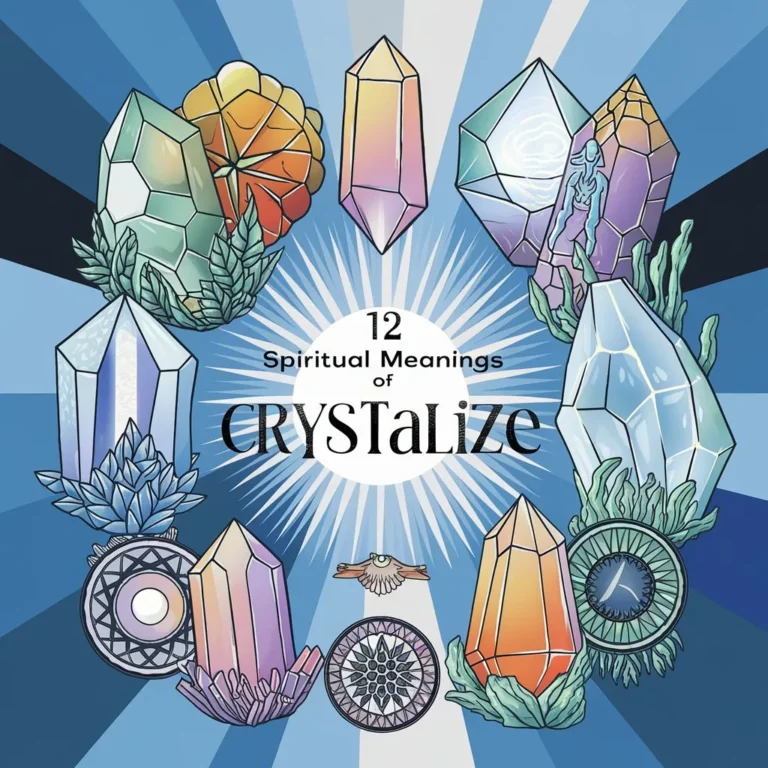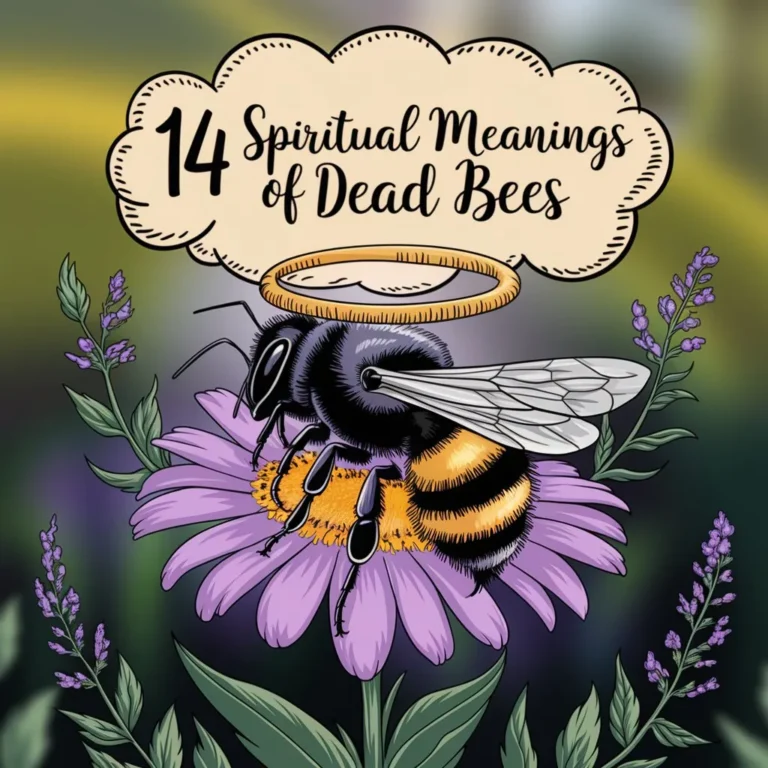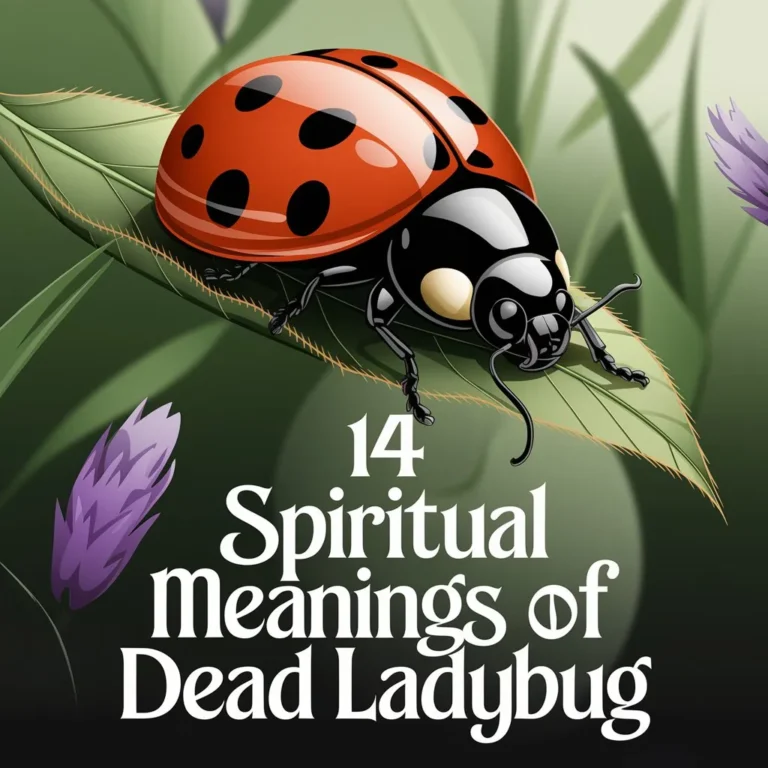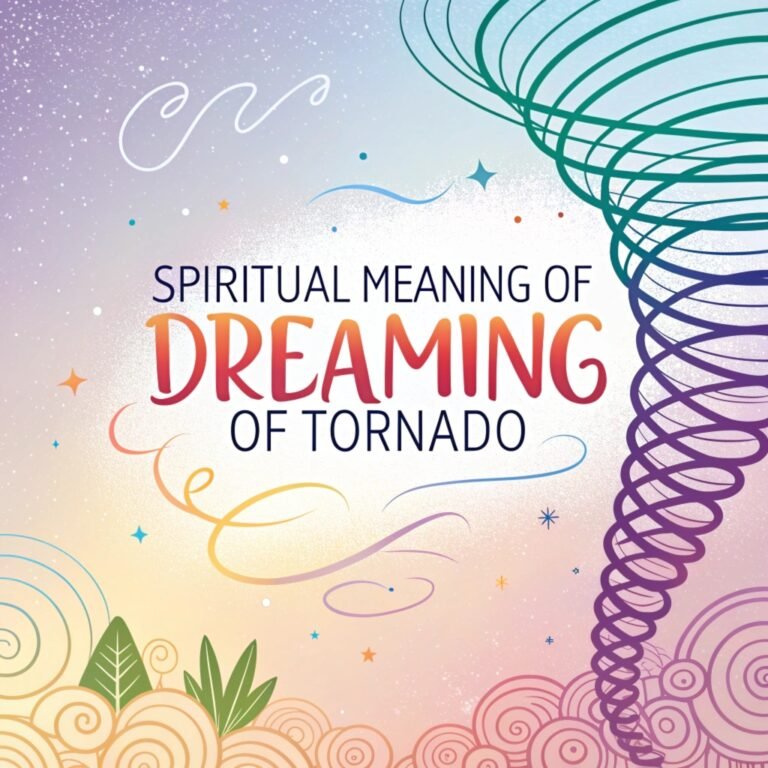12 Spiritual Meaning of Nose Piercing in Africa: The Cultural Secrets
As you explore the significance of nose piercings in Africa, you’ll discover a rich tapestry of spiritual, cultural, and ancestral meanings.
You’ll find that nose piercings symbolize spiritual awakening, connection to the universe, and introspection, while also marking significant life milestones like coming of age and marital status.
They represent clan identity, lineage, and heritage, as well as protection from evil spirits and promotion of healing and wellness.
With over 75% of African tribes attributing deep meaning to this adornment, you’re about to uncover a fascinating world of cultural significance that will leave you wanting to know more about the intricate stories behind this ancient practice.
Key Takeaways
- In African cultures, nose piercings symbolize spiritual awakening, enlightenment, and a deeper connection to the universe and its mysteries.
- Nose piercings mark a significant milestone in one’s life journey, signaling coming of age, maturity, and readiness for adulthood.
- In some societies, nose piercings are linked to marital status and fertility, signifying a woman’s readiness for spouse selection and family planning.
- Nose piercings serve as a visual representation of clan identity, lineage, and heritage, connecting individuals to their cultural traditions and ancestral roots.
- In many African cultures, nose piercings offer protection from evil spirits, promote healing and wellness, and symbolize growth, maturity, and a deeper understanding of one’s roots.
Marital Status and Fertility

In many cultures, nose piercings have been intricately linked to marital status and fertility, often serving as a symbol of a woman’s passage from maidenhood to matrimony.
You may not be aware that, in some societies, a nose piercing signified that a woman was ready for spouse selection and family planning.
This cultural significance is rooted in the idea that a woman’s pierced nose indicated her readiness to take on the responsibilities of marriage and motherhood.
In these cultures, nose piercings were often performed during puberty or shortly before marriage, marking a girl’s rite of passage to womanhood.
The piercing was seen as a visual representation of her maturity and readiness to start a family.
In some cases, the type of nose piercing or the material used even held significance, with certain designs or metals reserved for married women or those with children.
Spiritual Awakening and Enlightenment
Your nose piercing may be more than just a fashion statement; it can signify a deeper spiritual connection.
In many African cultures, nose piercings are believed to be a symbol of spiritual awakening and enlightenment. By adorning your nose with a piercing, you may be signaling to others that you’re open to divine guidance and cosmic awareness.
As you navigate your spiritual journey, your nose piercing can serve as a reminder of your connection to the universe and its mysteries.
It’s a symbol of your willingness to listen to your inner voice and trust your intuition. In this sense, your piercing becomes a powerful tool for self-reflection and introspection, helping you tap into your inner wisdom and higher consciousness.
Clan Identity and Lineage
Through the lens of many indigenous cultures, nose piercings serve as a visual representation of clan identity and lineage.
As you excavate into the significance of nose piercings, you’ll discover that they’re more than just a fashion statement – they’re a symbol of your family ties and ancestral roots.
In some African cultures, nose piercings are reserved for members of specific clans or families, signifying your connection to a particular lineage.
For instance, in some ethnic groups, a nose piercing on the left side may indicate that you’re a member of a royal family, while a piercing on the right side may signify your affiliation with a specific tribe.
As you explore the cultural significance of nose piercings, you’ll realize that they’re an integral part of your heritage.
They serve as a connection to your ancestors, a reminder of your roots and the rich cultural traditions that have been passed down through generations.
Rite of Passage and Initiation
Metamorphosis marks a pivotal stage in life, where an individual sheds old skin and emerges anew, reborn with fresh perspectives and responsibilities.
In many African cultures, nose piercing is an integral part of this transformation, signaling your coming of age and marking a significant milestone in your life journey.
As you undergo this rite of passage, you’re not just physically altering your body, but also venturing on a path of self-discovery.
The piercing process is a test of endurance, requiring you to confront and overcome pain, fear, and uncertainty.
By doing so, you demonstrate your ability to navigate life’s challenges and take responsibility for your own growth.
This newfound maturity earns you respect and recognition within your community, as you’re welcomed into the ranks of adulthood.
Your nose piercing becomes a badge of honor, symbolizing your shift from innocence to awareness, and your readiness to take on the responsibilities that come with adulthood.
Protection From Evil Spirits
What lies beyond the veil of our everyday reality, where the forces of darkness lurk, seeking to disrupt our lives?
In many African cultures, the nose piercing is believed to offer protection from evil spirits. You wear this spiritual shield as a symbol of strength and resilience, warding off malevolent energies that threaten to destroy your balance and harmony.
In this domain, the nose piercing serves as an evil repellent, deflecting negative influences that could lead to illness, misfortune, or even death.
By adorning your nose with a piercing, you’re signaling to the spiritual domain that you’re prepared to face the unknown, armed with the knowledge and wisdom of your ancestors.
This protection isn’t just about deflecting evil; it’s also about attracting positive energies that promote growth, abundance, and prosperity.
As you wear your nose piercing, you embody the spirit of your forebears, who relied on this sacred symbol to safeguard their communities from harm.
You’re part of a long line of guardians, tasked with preserving the delicate balance between the physical and spiritual worlds.
Beauty and Feminine Attraction
As you adorn your nose with a piercing, you’re not only making a fashion statement but also tapping into an ancient understanding of beauty and femininity.
In many African cultures, nose piercings are a symbol of feminine beauty and attraction. They’re a way to showcase one’s femininity and cultural identity.
Cultural norms dictate that a woman’s beauty isn’t just about physical appearance but also about her character and strength. A nose piercing is seen as a way to enhance one’s natural beauty while also signifying feminine empowerment.
Wealth and Social Status
Embracing a nose piercing, you’re also embracing a symbol of wealth and social status in many cultures.
In Africa, where nose piercings have been a staple for centuries, they’re often associated with economic power and prestige.
You see, in traditional societies, the nose piercing is a status symbol that signals a person’s wealth and influence.
The ability to afford a nose piercing, which often requires a significant amount of resources, is an indicator of one’s financial standing.
Furthermore, the piercing itself is a visual representation of one’s social standing, with the type of jewelry used and the location of the piercing indicating one’s rank within the community.
As a prestige symbol, the nose piercing is a badge of honor that commands respect and admiration.
Mourning and Bereavement
Beyond the domain of wealth and social status, nose piercings hold a profound significance in the context of mourning and bereavement.
You may wonder how a nose piercing, often associated with beauty and aesthetics, can be linked to death and loss.
In African cultures, nose piercings play a pivotal role in funeral rituals, symbolizing the connection between life and death. When you lose a loved one, the piercing serves as a tangible representation of your grief and emotional pain.
The act of piercing is often a cathartic experience, allowing you to express and process your emotions in a physical way.
Death symbolism is deeply ingrained in African cultures, and nose piercings are an integral part of this narrative.
By adorning yourself with a nose piercing during a time of mourning, you’re not only honoring the deceased but also acknowledging the cycle of life and death.
This spiritual practice helps you navigate the complexities of bereavement, providing a sense of comfort and solace in times of profound sorrow.
Healing and Medicine
Piercing through cultural boundaries, the significance of nose piercings extends to the sphere of healing and medicine, where they’re believed to possess therapeutic properties.
You’ll find that in many African cultures, nose piercings are used as a form of natural remedy to treat various health issues.
In some African communities, nose piercings are thought to:
- Ease menstrual cramps: In some cultures, nose piercings are believed to help alleviate menstrual cramps and other symptoms associated with PMS.
- Treat respiratory issues: Nose piercings are said to help relieve sinus pressure and other respiratory problems.
- Prevent certain diseases: Some cultures believe that nose piercings can ward off certain diseases, such as epilepsy or seizures.
- Promote overall well-being: Nose piercings are also believed to have a calming effect, promoting emotional balance and overall well-being.
In these communities, nose piercings are often used in conjunction with herbal treatment and other natural remedies to promote healing and wellness.
Ancestral Connection and Heritage
As you plunge into the domain of nose piercings, you’ll discover that they also hold significant importance pertaining to ancestral connection and heritage.
In many African cultures, nose piercings are a way to honor one’s ancestors and connect with their family legacy. These ancient traditions have been passed down through generations, and each piercing tells a story of the individual’s lineage and heritage.
By getting a nose piercing, you’re not only adorning your body with a beautiful piece of jewelry but also paying homage to your forebears.
You’re acknowledging the sacrifices they made, the struggles they overcame, and the values they instilled in you. Fundamentally, you’re carrying their legacy forward and keeping their memory alive.
In some African societies, nose piercings are a rite of passage, marking an individual’s passage from one stage of life to another.
They signify growth, maturity, and a deeper understanding of one’s roots. As you wear your nose piercing, you’re reminded of the rich cultural heritage that flows through your veins, connecting you to your ancestors and the community at large.
Spiritual Growth and Wisdom
Three distinct stages of spiritual growth can be associated with nose piercings, each reflecting a deeper understanding of oneself and the universe.
As you set out on this journey, you’ll discover that nose piercings aren’t just a fashion statement, but a symbol of your spiritual evolution.
- Awakening: You begin to question the status quo and seek answers to life’s mysteries, marking the start of your spiritual journey.
- Illumination: You experience a surge in divine intuition, allowing you to tap into mystical insight and gain a deeper understanding of the universe.
- Transcendence: You transcend the physical domain, connecting with your higher self and the world around you on a profound level.
- Enlightenment: You achieve a state of spiritual mastery, where your intuition and insight guide you to make decisions aligned with your highest purpose.
Through these stages, nose piercings serve as a physical reminder of your commitment to spiritual growth and wisdom.
As you progress, you’ll find that your connection to the universe and yourself deepens, allowing you to navigate life’s challenges with greater ease and clarity.
Tribal Affiliation and Belonging
Your nose piercing can also be a symbol of tribal affiliation and belonging, connecting you to a community that shares similar values and ideologies.
In many African cultures, nose piercings serve as tribe markers, signifying an individual’s membership in a particular group. By wearing a nose piercing, you’re broadcasting your allegiance to a specific community, and this visual representation of affiliation can evoke a sense of pride and identity.
In this context, your nose piercing becomes a community badge, distinguishing you from outsiders and solidifying your bond with fellow community members.
This form of self-identification is especially important in societies where communal ties are paramount. By embracing this aspect of nose piercing, you’re not only honoring your heritage but also reinforcing your connection to a shared cultural narrative.
As you navigate your cultural identity, your nose piercing can serve as a powerful symbol of belonging, bridging the gap between your individuality and your communal roots.
Frequently Asked Questions
Can Nose Piercings Be Removed or Replaced in African Cultures?
If you’re experiencing piercing regrets, you can remove or replace your nose piercing in many African cultures, embracing cultural fusion by blending traditional practices with modern preferences, allowing for personal growth and self-expression.
Are Nose Piercings Only for Women in African Societies?
You’ll find that in many African societies, nose piercings aren’t exclusive to women, as cultural norms and gender roles vary across regions, with some cultures allowing men to wear them as a symbol of status or spiritual identity.
Do Different Nose Piercing Locations Hold Unique Meanings?
You’ll discover that different nose piercing locations hold unique meanings, influenced by tribal affiliations and personal expression, as some signify spiritual growth, while others represent cultural identity, status, or even marital status, varying across African societies.
Can Non-Africans Get Nose Piercings With African Cultural Significance?
You’re considering getting a nose piercing with African cultural significance, but wonder if it’s okay as a non-African. Be aware that cultural appropriation is a concern; however, if you’re respectful of the origins and integrate it into your personal identity, it can be a meaningful expression of self.
Are There Age Restrictions for Getting Nose Piercings in Africa?
You’ll find that in some African cultures, nose piercings are tied to coming of age rituals, serving as a rite of passage, where age restrictions apply, signifying a young person’s metamorphosis to adulthood, and earning them respect within their community.
Conclusion
As you excavate into the world of African nose piercings, you’ll discover a rich tapestry of spiritual meanings. From symbolizing marital status and fertility to warding off evil spirits, each piercing holds a unique significance. By exploring these 12 meanings, you’ll gain a deeper understanding of the cultural nuances that underpin this ancient practice. Ultimately, African nose piercings represent a powerful fusion of spirituality, identity, and community – an attestation to the continent’s profound cultural heritage.

Liza Stockholm is an esteemed spiritual guide and the visionary behind Spiritual with Liza. With a profound passion for empowering others on their spiritual journey, Liza offers a blend of educational content and personal guidance. Her expertise in spirituality is rooted in years of dedicated practice and study, making her a trusted companion for those seeking enlightenment and inner peace.







